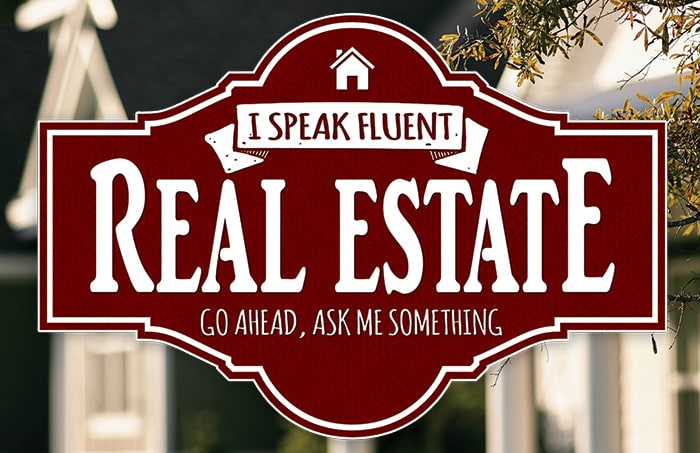Buying a home involves its own language. Thank goodness we at Home Sweet Des Moines speak fluent Real Estate. Today, we’re focusing on the ones we most commonly use with our homebuyers.
Appraisal
A written justification of the price paid for a property, primarily based on an analysis of comparable sales of similar homes nearby. The appraised value is the opinion of a property’s fair market value, based on an appraiser’s knowledge, experience, and property analysis.
Contingency
A condition that must be met before a contract is legally binding. Typical contingencies include:
- Home must appraise at or above the purchase price (appraisal to be covered by buyer or buyer’s lender)
- Buyers have a specific inspection time period to have the house inspected and to request repairs, if needed.
- Subject to sale contingency: Buyers must sell their current house before purchasing this house.
Cash to Close
This is the total amount that buyers will need to bring to closing. It will include (but may not be limited to):
- Closing costs from lender (origination fees, credit reporting fees, appraisal costs, etc.)
- Prepaids (prepaid homeowners insurance for a year, prepaid taxes to put into the escrow account, prepaid interest for the remainder of the month, etc.)
- Down payment
Earnest money already paid by buyers is credited to this amount. In Iowa, the seller will also provide a prorated tax credit of 9-15 months of property taxes, which will reduce the total amount to close (see our post Those Crazy Iowa Property Taxesfor more details).
The lender is required by law to give the buyers the preliminary closing disclosure at least three business days prior to closing. Cash to close should be delivered by buyer in the form of a cashier’s check.
Down Payment
The part of the purchase price of the property that the buyer pays in cash and does not finance with a mortgage. This is typically expressed in terms of a percentage. For instance, if the purchase price of a property is $200,000, and the buyer is putting $20,000 towards the purchase, this is a 10% down payment.
Escrow Account
Once you close your purchase transaction, you may have an escrow account with your lender. Your monthly payment will include escrow amounts for homeowners’ insurance and/or property taxes. When those items are due, your lender will simply send in the payments on your behalf. Lenders typically require you to escrow your homeowners insurance and property taxes if your down payment is less than 20%.
Fair Market Value
The highest price that a buyer, willing but not compelled to buy, would pay, and the lowest a seller, willing but not compelled to sell, would accept.
Home Inspection
A thorough inspection by a professional that evaluates the structural and mechanical condition of a property. A satisfactory home inspection is often included as a contingency by the buyer.
Homeowners’ Association
A nonprofit association that manages the common areas of a planned unit development. This association also creates covenants, aka: rules to help keep the community’s property values up.
Homeowner’s Warranty
A type of insurance often purchased by homebuyers that will cover repairs to certain items, such as heating or air conditioning, should they break down within the coverage period. The buyer often requests the seller to pay for this coverage as a condition of the sale, but either party can pay.
Pending
An offer has been accepted and a property is now “pending” or “under contract”. You will see this on for sales signs, and online listing when there is a solid contract.
PMI
Private Mortgage Insurance. Insurance that protects a lender against loss if a borrower defaults on a loan. PMI is generally required for conventional loans that have less than a 20 percent down payment, though some lenders have single payment PMI programs or programs where you don’t have to pay with an even lower down payment.
While there are literally thousands more terms we could discuss, not everyone lives and breathes real estate. Have questions about other terms? Contact Nora or Tawnia today!
NEXT MONTH: Seller Real Estate Dictionary



